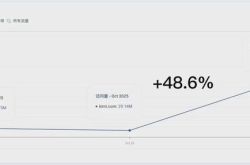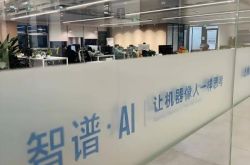"Expanding into Warehouses" for Growth: How Does Instant Retail Supply Evolve?
![]() 10/23 2024
10/23 2024
![]() 457
457
Written by Chen Feng
Edited by Midnight
In recent years, MINISO, one of China's most representative retail brands, has been rapidly expanding.
As of June 30 this year, MINISO has over 4,100 stores in the Chinese market and over 2,700 stores overseas.
Expanding store presence is just one of MINISO's priorities. It is also seeking more growth opportunities in the instant retail sector.
On October 14, MINISO announced a strategic partnership with Meituan, and plans to launch over 800 "24H Super Stores" in the form of Lightning Warehouses on Meituan by the end of the year.
According to MINISO, the "24H Super Stores" in the form of Lightning Warehouses cater specifically to instant retail users' online shopping needs, differentiating themselves from regular offline stores in terms of product variety, coverage, operating hours, and service experience.
MINISO's continued focus on instant retail and embrace of Lightning Warehouses is not an isolated case.
In recent years, as the instant retail market has grown and evolved, many retailers and brand owners have shifted their focus from "whether to enter the instant retail market" to "how to do it effectively."
Among them, Meituan's Lightning Warehouse, a new supply model explored in recent years, has become a notable change on the instant retail supply side.
To date, the number of Meituan Lightning Warehouses has exceeded 30,000, covering a wide range of categories such as digital appliances, baby products, convenience stores, flowers, medical equipment, etc. Each vertical category is accelerating its "warehouse opening" efforts.
At a recent Meituan Instant Retail Industry Conference, Wang Puzhong, CEO of Meituan's core local commerce division, revealed that by 2027, the number of Meituan Lightning Warehouses is expected to exceed 100,000, with a market size of RMB 200 billion, covering all categories and regions.
It is not difficult to see that against the backdrop of the rapid expansion of the instant retail market, the market value of the new supply model of Lightning Warehouses is being validated.
1. What Makes Lightning Warehouses Attractive?
Meituan once shared this story about Lightning Warehouses.
In 2023, an impatient customer in Xi'an placed over 800 orders from various Lightning Warehouses—meaning they placed orders more than twice a day on average, fulfilling their daily needs through one-hour delivery.
This customer is a typical representation of today's consumers who prioritize convenience.
According to Accenture's report "Focusing on China's Post-95s Consumer Group," post-95s consumers prioritize speed when shopping. Over 50% of them expect to receive their orders on the same day or within two hours. They seek instant gratification and may cancel orders due to unclear delivery times, willing to pay extra for faster delivery.
In other words, "buy now, get it now" has become the primary consumption trend among younger consumers.
Furthermore, according to the "Instant Retail Industry Development Report (2024)," the number of active instant retail users in 2023 was approximately 580 million, a year-on-year increase of 34.88%, accounting for 53.11% of internet users.
Another trend behind this is that instant retail has ceased to be merely emergency retail in the daily lives of more people. Consumers' needs are evolving, transitioning towards higher certainty demands.
Meeting users' growing certainty demands is no easy feat—
The core challenge lies in platforms and merchants needing to better satisfy users' diverse needs while ensuring timely fulfillment in instant retail scenarios.
For example, in the past, when users wanted to buy game controllers, phone cases, facial cleansers, razors, etc., they often had to choose between waiting for delivery from e-commerce platforms or visiting offline stores, which might not carry all the items in one go.
The certainty value that instant retail scenarios provide lies in enabling users to place online orders and receive all these items within an hour or less, much like ordering takeout.
Objectively speaking, opening more offline stores and increasing their density is one solution.
However, users' increasingly diverse and personalized needs, unlike frequent and rigid demands like food and drink, make traditional store expansion unrealistic due to high costs.
Given this, from a supply-side perspective, users' instant needs require new supply models to match them.
The emergence of the Lightning Warehouse model, to some extent, addresses these contradictions.
Lightning Warehouses are essentially a type of front-end warehouse. Unlike Dingdong Maicai's front-end warehouses, Meituan's Lightning Warehouses are not self-operated. They are run by franchisees, while Meituan's role is to assist merchants in digital operations, guiding them in site selection, product selection, pricing, marketing, and more.
Specifically, Lightning Warehouses are not offline stores but warehouses that cater exclusively to online demands, thereby minimizing merchants' costs—no need to consider offline traffic, decoration, etc. They can store more products, operate 24/7, and primarily focus on inventory management.
For a vast number of offline retailers and brand owners, deploying Lightning Warehouses represents new market growth.
On the one hand, Lightning Warehouses are highly replicable, allowing merchants to open more of them at lower costs, reaching a wider audience. On the other hand, they can complement offline operations by differentiating product offerings to meet diverse needs.
Consider this real-life example. A service provider revealed to the media that they have opened over 50 Meituan Lightning Warehouses this year, all profitable.
The service provider stated that each Lightning Warehouse typically covers 200 square meters, employs 6-7 staff, and costs around RMB 500,000. Among these warehouses, the lowest monthly net profit is RMB 30,000, while the highest is RMB 80,000.
2. MINISO Sets an Example with "Warehouse-Driven" Growth
MINISO's choice to collaborate with Meituan's Lightning Warehouses stems from the expanding instant retail market, presenting new opportunities. It aims for instant retail to become its second growth driver in China.
However, MINISO faced challenges in its early instant retail endeavors.
"90% of MINISO's regular stores are located in malls, ideal offline traffic hubs. But for instant retail, they're limited by mall operating hours and a five-kilometer coverage radius, which isn't enough," said Chen Zhenjie, head of MINISO's instant retail business.
Lightning Warehouses are MINISO's breakthrough.
On the one hand, Chen Zhenjie likened user needs to a bottle: opening stores is like filling the bottle with stones, while opening warehouses is like adding sand. As a complement to regular stores, "24H Super Stores" help MINISO satisfy more users' instant needs in terms of coverage, operating hours, and service experience.
On the other hand, by implementing differentiation strategies in site selection and product offerings, MINISO's Lightning Warehouses complement its regular offline stores.
"In the future, the product differentiation rate between '24H Super Stores' and regular offline stores is expected to reach 70%," Chen Zhenjie told Lianxian Insight.
Notably, MINISO didn't initially roll out Lightning Warehouses on a large scale but underwent a market validation process.
Last September, MINISO began preparing for this project. After officially opening its first store in January this year, MINISO and Meituan underwent a six-month trial period. By June, MINISO had over 100 Lightning Warehouses nationwide, validating its growth and profitability models before accelerating expansion.
"We visited various regions in Guangdong, Southwest China, and Northeast China, conducting research and exchanges with local Lightning Warehouse merchants. We found that their performance exceeded our expectations," said Chen Zhenjie.
To date, MINISO has deployed around 500 "24H Super Stores" nationwide, mostly in first- and second-tier cities and popular tourist destinations, with cumulative sales exceeding RMB 100 million. Specifically, MINISO's first Lightning Warehouse in Jiangbei District, Chongqing, surpassed RMB 250,000 in monthly sales within three months of opening.
Throughout this process, MINISO's understanding and judgment of instant retail have evolved.
Chen Zhenjie explained, "Initially, we viewed instant retail as an extension of offline operations. But we gradually realized its vast potential as users in dense residential and office areas have high instant retail demands. Lightning Warehouses operate 24/7, solely focused on instant retail, benefiting overall business development."
It's evident that in just six months, from the initial trial to large-scale Lightning Warehouse deployment, MINISO and Meituan have jointly created a "showroom" for Lightning Warehouses.
Following this partnership, both parties will deepen collaboration in site selection, product offerings, operations, and organization.
For instance, leveraging MINISO's supply chain advantages and user data, Meituan Flash will provide customized product strategies. Meanwhile, Meituan Flash will also establish store operation systems and effective solutions to help MINISO quickly assemble a super store operation team, enabling rapid system implementation and refined regional operations.
3. More Players Are Following Suit, Presenting the Biggest Opportunity in Instant Retail
On Meituan Flash, "showrooms" like MINISO are proliferating.
Watson's is one such example. Currently, Watson's Lightning Warehouses on Meituan cover over 10 first- and second-tier cities, with warehouse productivity increased by 140%.
Another case is ParknShop Finest, which opened its first Lightning Warehouse with Meituan Flash's support in April 2021. To date, it has over 40 Lightning Warehouses in over 10 cities nationwide, with sales exceeding RMB 250 million in 2022 alone.
Moreover, Dolphin Mall, positioned as "the next-generation super convenience store for young people," has opened over 40 Lightning Warehouses nationwide in Chengdu, Beijing, and Hangzhou, averaging over 15,000 sales per month and around RMB 250 million in annual transactions. Dolphin Mall's founder Cheng Cheng previously stated that they aim to open 1,000 Lightning Warehouses on Meituan within the next three years.
As more large, medium, and small retail players accelerate their Lightning Warehouse deployments, it's clear that this new supply model is becoming a mainstream trend, with widespread consensus on its importance.
Lianxian Insight notes that besides Meituan, an increasing number of players are exploring Lightning Warehouse-like models.
Take Sam's Club as an example. While it has only a few offline stores in select Chinese cities, it has established over 500 front-end warehouses, or "Sam's Cloud Warehouses," in first- and second-tier cities, facilitating transactions and deliveries via online food delivery services. Currently, each warehouse averages over 1,000 orders per day, gradually becoming a core feature of Sam's Club in China.
It's foreseeable that this new supply model will further unlock growth potential in the instant retail industry.
On the one hand, the instant retail market is still expanding rapidly.
According to the "Instant Retail Industry Development Report (2023)" released by the Ministry of Commerce's International Trade and Economic Cooperation Research Institute, the instant retail industry has maintained over 50% year-on-year growth in recent years. In 2022, the market size exceeded RMB 500 billion and is projected to triple by 2025.
Source: Zheshang Securities
An industry insider told Lianxian Insight that there's a prevailing view that Lightning Warehouses represent the biggest opportunity in instant retail. Theoretically, all towns with food delivery services can leverage Lightning Warehouses to enter the instant retail market.
Notably, the vast county-level market is a definitive growth area for instant retail. The Lightning Warehouse model also helps offline retailers tap into opportunities in lower-tier markets. From January to August this year, Meituan's instant retail orders in lower-tier cities grew by 54% year-on-year, with rapid Lightning Warehouse expansion in these markets. By 2024, Meituan had opened 1,866 convenience store Lightning Warehouses in lower-tier cities.
On the other hand, as the Lightning Warehouse model becomes mainstream, it will further accelerate growth in the instant retail industry.
Richer local retail supply and efficient fulfillment can best meet consumers' evolving diverse instant retail needs, which, in turn, will attract more offline retailers and brand owners, enriching supply and enhancing experiences.







